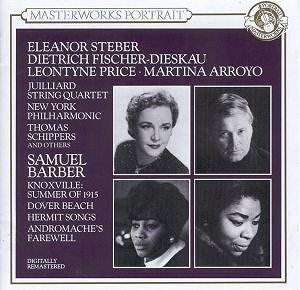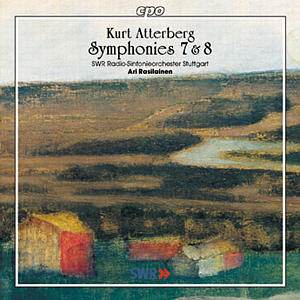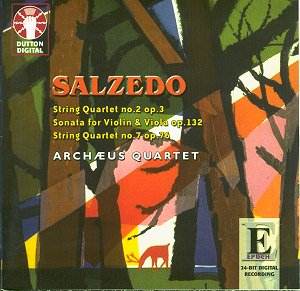 Composer: Jaakko Mäntyjärvi
Composer: Jaakko Mäntyjärvi
Works: Pseudo-Yoik; Shakespeare Songs: Come away, death, Lullaby, Double, double, toil and trouble, Full fathom five; El Hambo; More Shakespeare Songs: Fear no more, Over hill, over dale, Time, Who is Sylvia, A scurvy tune; Psalm 150 in Grandsire Triples; Canticum Calamatatis Maritimae; Psalm 150 in Kent Treble Bob Minor; Kouta
Performers: Tapiola Chamber Choir; Sibelius Academy Chamber Orchestra; Hannu Norjanen; Emmiliiana Tikkala, piccolo
Recording: Roihuvuori Church, Helsinki, and Olari Church, Espoo, 2001(?)
Label: Finlandia
Jaakko Mäntyjärvi, a composer whose work encapsulates the essence of contemporary choral music, emerges with his album “Eclectica,” revealing a vibrant tapestry of sound that aligns tradition with innovation. As a composer born in Finland in 1963, Mäntyjärvi draws from a rich cultural heritage while integrating his academic background in English and linguistics to forge a unique voice. His choral works on this disc, particularly the settings of Shakespeare and the creative interpretations of traditional forms, not only showcase his compositional prowess but also his capacity to engage listeners with humor and intellect.
The album opens with “Pseudo-Yoik,” a jubilant piece that pays homage to the traditional Lappish vocal form. Here, the Tapiola Chamber Choir’s performance is particularly noteworthy; the choir achieves a robust, earthy tone that is both invigorating and humorous. The fortissimo choral grunts and playful nonsense text invite the listener into an unexpected sonic landscape, a hallmark of Mäntyjärvi’s inventive style. Following this, the Shakespeare settings shift the mood towards a more somber yet equally compelling realm. The choice to create idiomatic, singable music devoid of gimmicks is refreshing in a contemporary context. The setting of “Fear no more the heat o’ the sun” stands out as a poignant moment, seamlessly blending lyrical beauty with harmonic sophistication.
“El Hambo” emerges as the disc’s centerpiece, a tour de force of rhythmic vitality. The combination of stamping, clapping, and grunting, alongside the witty use of cod Swedish accents, demonstrates Mäntyjärvi’s playful engagement with cultural references while showcasing the choir’s technical agility. The subsequent settings of Shakespeare’s works continue to impress, particularly the delightful “Scurvy Tune,” where a piccolo solo introduces a lively homage to both the traditional Hornpipe and Bach’s Brandenburg Concerto No. 3. These intertextual references not only enrich the musical experience but also highlight Mäntyjärvi’s ability to weave humor with historical depth.
The two settings of Psalm 150, particularly the “Grandsire Triples,” reflect Mäntyjärvi’s fascination with bell-ringing—a theme that adds a layer of complexity to the choral writing. The first piece utilizes a descending scale, meticulously notated in the booklet, allowing listeners to appreciate the mathematical beauty behind the composition. The “Kent Treble Bob” variant further impresses with its division of the scale among seven solo voices, a technical feat that the vocalists navigate with commendable precision.
Canticum Calamatatis Maritimae, inspired by the tragic sinking of the Estonia, showcases a more solemn and reflective side of Mäntyjärvi’s artistry. The ethereal quality of the choral writing, accompanied by a haunting soprano melody, evokes an emotional depth reminiscent of cinematic scores, yet it stands as a singular expression of grief and remembrance. The final piece, “Kouta,” employs a small orchestra with striking economy, exhibiting Mäntyjärvi’s adeptness at creating colorful soundscapes while maintaining a focus on choral texture. The climax, where female voices embody Earth-Spirits, is executed with haunting beauty, leaving a lasting impression.
The engineering and sound quality of this recording are exemplary, capturing the rich resonance of the Roihuvuori and Olari churches while allowing the nuances of the choral and orchestral interplay to shine. The balance achieved between the choir and the instrumentalists is commendable, ensuring that even the most delicate passages are rendered with clarity.
Mäntyjärvi’s “Eclectica” stands as a significant contribution to the choral repertoire, showcasing a composer who deftly balances tradition with modernity. The album is both a celebration of choral singing and a testament to Mäntyjärvi’s innovative spirit, making it an essential listen for aficionados of contemporary choral music. The insightful performances and the varied musical landscapes presented herein create a rich auditory experience that resonates well beyond the final note.



